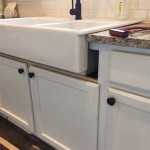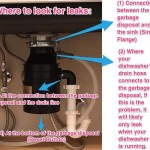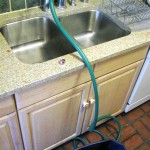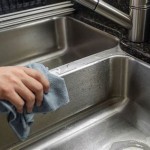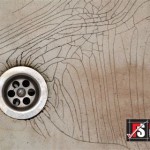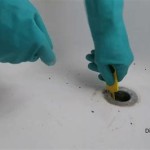Slow Draining Sink No Clog
A slow draining sink can be a frustrating and time-consuming problem. If you've checked for clogs and there are none, there are a few other things that could be causing the issue. Here are a few of the most common causes of a slow draining sink without a clog, along with some tips on how to fix them.
1. P-Trap Buildup
The P-trap is the curved section of pipe under your sink that prevents sewer gases from escaping into your home. Over time, hair, soap scum, and other debris can build up in the P-trap, causing it to become clogged and restrict water flow.
To clean the P-trap, you'll need to remove it from under the sink. Place a bucket under the P-trap to catch any water that may spill out. Loosen the nuts that hold the P-trap in place and carefully remove it. Once the P-trap is removed, you can clean it out with a brush or a stream of water. Be sure to rinse the P-trap thoroughly before reinstalling it.
2. Slow Drain Vent
The drain vent is a pipe that runs from the sink to the roof of your house. It allows air to circulate in the drain system, which helps to prevent clogs. If the drain vent is blocked, it can cause the sink to drain slowly.
To check if the drain vent is blocked, you can pour a cup of water down the sink. If the water drains slowly, it's possible that the vent is blocked. You can try to clear the vent by pouring a cup of vinegar down the drain, followed by a cup of boiling water. If that doesn't work, you may need to call a plumber to have the vent cleaned.
3. Damaged Drainpipe
If the drainpipe is damaged, it can restrict water flow and cause the sink to drain slowly. A damaged drainpipe can be caused by a number of things, such as tree roots, corrosion, or freezing. If you suspect that the drainpipe is damaged, you'll need to call a plumber to have it repaired or replaced.
4. Septic Tank Issues
If you have a septic tank, a slow draining sink could be a sign that the tank is full or needs to be pumped. A full or clogged septic tank can cause wastewater to back up into your drains, which can lead to slow draining sinks, toilets, and showers.
To check if your septic tank is full, you can look for signs of sewage backup in your drains or toilets. If you see sewage backing up, you'll need to call a septic tank pumping company to have the tank pumped.
5. Hard Water Buildup
Hard water contains a high concentration of minerals, such as calcium and magnesium. These minerals can build up on the inside of your pipes and fixtures, which can restrict water flow and cause the sink to drain slowly.
To remove hard water buildup, you can use a commercial descaling product. Be sure to follow the directions on the product label carefully. You can also try pouring a cup of vinegar down the drain, followed by a cup of boiling water. This will help to dissolve the mineral buildup and improve water flow.

How You Can Fix A Slow Draining Drain On Your Own Call Ashton Plumbing

Slow Sink Drain Kitchen Not The Trap

How To Unclog A Slow Running Bathroom Sink Drain 10 Options

How To Unclog A Slow Running Bathroom Sink Drain 10 Options

4 Tips To Fix A Slow Draining Sink

Kitchen Sink Not Clogged But Won T Drain Try These Tips My Trusted Expert

5 Causes Of Slow Bathroom Sink Drain And Fixes Frank S Repair Plumbing

How Can I Clear A Slow Drain Faq Plumbing By Jake

How To Unclog A Slow Draining Bathroom Sink

Causes And Solutions For Slow Bathroom Sink Drains
